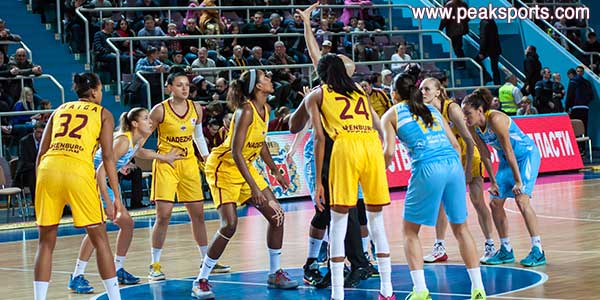
The Importance of Having a Plan B
‘Expect the unexpected’ is a notion that is good in theory but rarely put into action by athletes.
The unexpected happens all the time in competition but rarely are athletes prepared to deal with it.
Many athletes train and practice expecting to perform under ideal conditions but, when things go slightly wrong, it can generate so much anxiety and ruin competitive performance.
The following examples illustrate how the unexpected can hurt an athlete’s performance… a tennis player worked hard for an upcoming tournament. She felt in top condition and her serves felt powerful and dead on. But in warm-up, she broke a string on her favorite racquet which mentally threw her off her game in the first set…
Or a golfer looked forward to a top tournament all season. He worked on his putting all season and really put things together the last month. He felt that he finally put his golf game all together. Unfortunately the night before the tournament, there was a heavy rainfall which made the greens slick. He felt so upset because he finally pieced his whole game together and looked forward to shooting his lowest score but, through the first nine holes, he was a bundle of nerves…
Or a basketball player who had been out of commission for two months rehabbing an injured elbow and was excited for her first game back. She had been watching her teammates play week after week while she was injured and finally was in shape and ready to go. During warm-up, she felt a twinge in her elbow and was so worried about re-injuring her elbow that she didn’t take a shot the entire game.
Sometimes, things don’t go as planned but that doesn’t mean things will go badly. If you practice and plan for different, less-than-optimal circumstances, you will not be totally thrown off your game when the unexpected strikes.
To clarify, uncertainty causes anxiety, so if you understand that optimal circumstances are not guaranteed, you can maintain a sense of calm and still perform well in a variety of adverse conditions.
Preparing for the unexpected is the method the US Women’s National Team has prepared for the 2019 World Cup. Head Coach Jill Ellis has tinkered with different lineups, new formations and alternate match strategies to prepare the team for many different contingencies.
USWNT defender Becky Sauerbrunn stated she feels better prepared to compete after training for a variety of potential scenarios.
SAUERBRUNN: “[Head coach Jill Ellis] said she was going to throw people into formations and into games that maybe they weren’t prepared for and she wanted to see how they reacted, because in a World Cup you never know what you’re going to face, and you’re going to have to be able to take those challenges on and still perform well. And so I feel very strong having gone through that process.”
Circumstances change all the time in competitive sports and having a contingency plan in place for when circumstances are not optimal is an effective strategy for being a successful athlete.
Preparing for the Unexpected:
You can’t train for every possible scenario but you can learn to be flexible so you can better manage obstacles are thrown your way.
Develop plan B. “If this happens, I will do this.”
Start by thinking about what might throw off your performance. What has rattled you in the past, such as opponent cheating or harsh spectators.
Think about how you will cope with these challenges–developing a positive response to each challenge that helps you stay focused and composed.
Work on your new coping action during practice.
Related Sports Psychology Articles
- How Consistent Preparation is Key to Performance
- How Preparation Boosts Confidence
- Athletes Who Worry About Preparation
*Subscribe to The Sports Psychology Podcast on iTunes
*Subscribe to The Sports Psychology Podcast on Spotify
Download a free sports psychology report to improve your mental game!
Learn more about our one-on-one mental game coaching.
The Composed Athlete

“The Composed Athlete” is presented on 80-minute Audio Programs with a 70-page step-by-step workbook that guides you through the program each day. It’s a complete system for conditioning your mind to have maximum composure in competition.
“The Composed Athlete” was developed for any level coach, parent, or junior to professional athlete who wants to improve performance and gain a competitive edge. It does not matter if you are a fledgling junior athlete; or a seasoned professional, plagued with distractions; or you just wanting to learn how to improve your composure…
